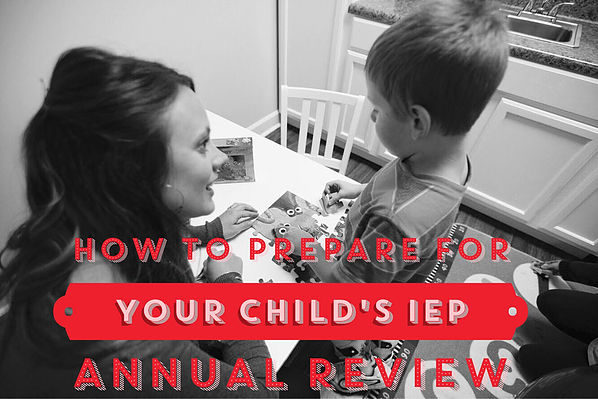As the school year comes to a close, it may be time to update your child’s IEP. Here are some “need-to-know’s” to help you prepare to meet with your child’s teachers and therapists for the upcoming IEP meeting:
*What is an IEP?
To refresh your memory, the “Individualized Education Plan,” or IEP, is a legal document developed to ensure your child, who has a disability identified under the law, receives specialized instruction and related services. It will include time and length of services in addition to accommodations and goals. It is a written agreement that puts the plan for your child into place. It sounds scary, but it isn’t!=
*Let’s Meet
At least once a year, your team of teachers, therapists and staff will schedule a meeting to review the evaluation and update the IEP. When meeting with the team, Amanda Pineau, mother of a child with Autism, encourages parents to “bring someone else with you, like a spouse or guardian. Sometimes you need someone else that can offer a different perspective; someone to ask questions you may not think of, and for general support.” When preparing for her first IEP meeting several years ago, Amanda and her husband brought a parent advocate from the South Carolina Autism Society to help them with the initial process. She explained, “these mentors are a great source of information and will be your most valuable asset during the IEP process.”
*Before the Meeting
Before meeting with your team, it is important to prepare yourself with the questions and goals you may have for your child.
-
Review: Review your child’s current IEP. Every year, Amanda highlights her son’s previous IEP and writes down specific questions related to his goals and progress. Amanda typically prepares for her son’s annual IEP meeting “by reviewing my son’s current IEP, especially reviewing his goals and accommodations, and make note of his progress. This helps me better understand how things will move forward for the next year.”
-
Reflect: Take time to reflect on the past year – how has your child excelled and what skills do you want your child to acquire? Elaine Harvey, Speech Therapist with Greenville County Schools, encourages parents to “bring questions and have an idea of your expectations.” Ms. Harvey reminds parents to “not expect immediate changes. It may not be a quick fix and that is okay.”
-
Remember: This may seem silly, but set a reminder to attend the meeting! Life gets so busy – it is easy to forget the details. Carve out time to be present for your child and eliminate all distractions. You’ve worked hard to help your child succeed and the team needs your input.
-
Respond: Because you are a valued member of your child’s team, share your concerns and reasons to celebrate. What is working for your child and what remains difficult? As parting wisdom from Amanda, remember to “go into an IEP with an open mind, and know that [your child’s] best interest is the ultimate goal.”
You can do this! Take one-step at a time, and know the teachers’ desire is to help your child succeed. Remember to Trust the Best is Yet to Come!


Recent Comments